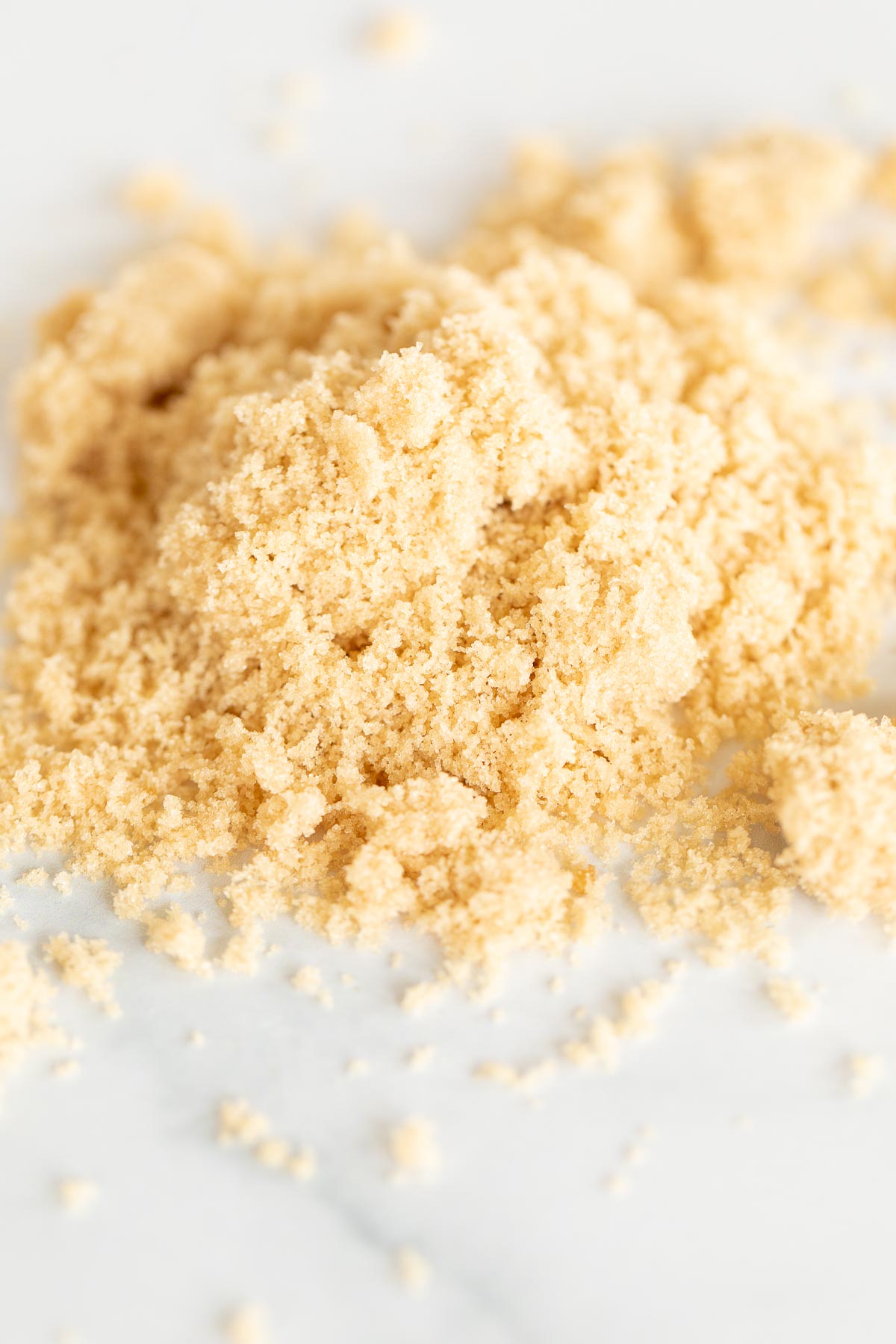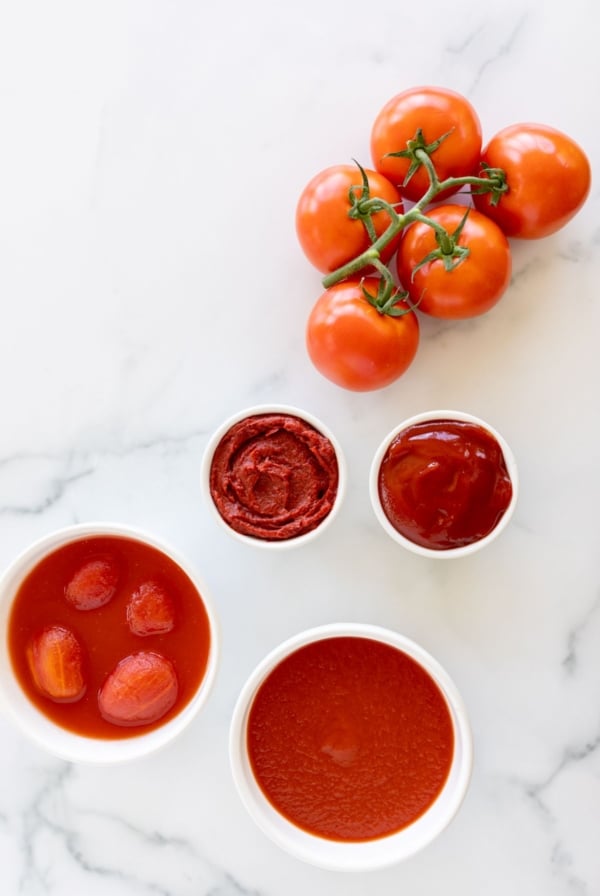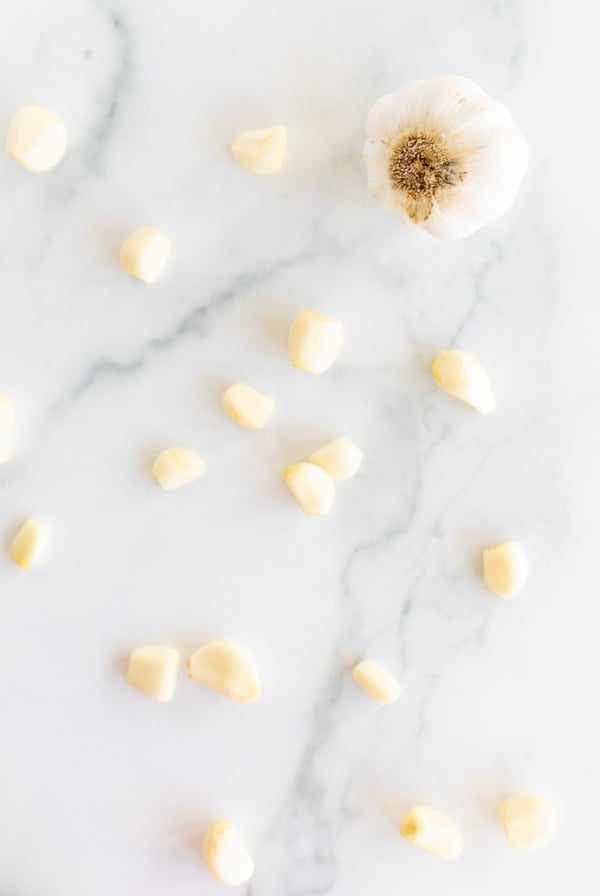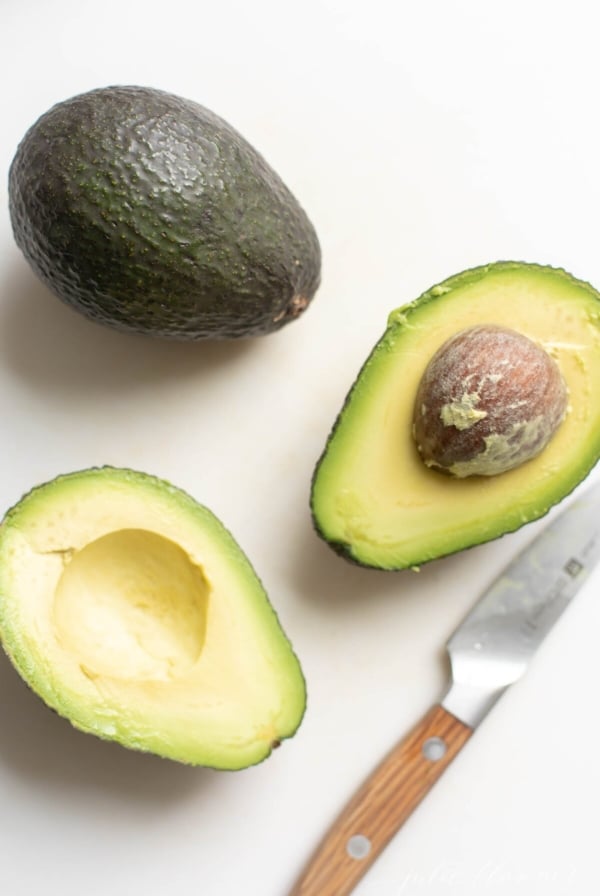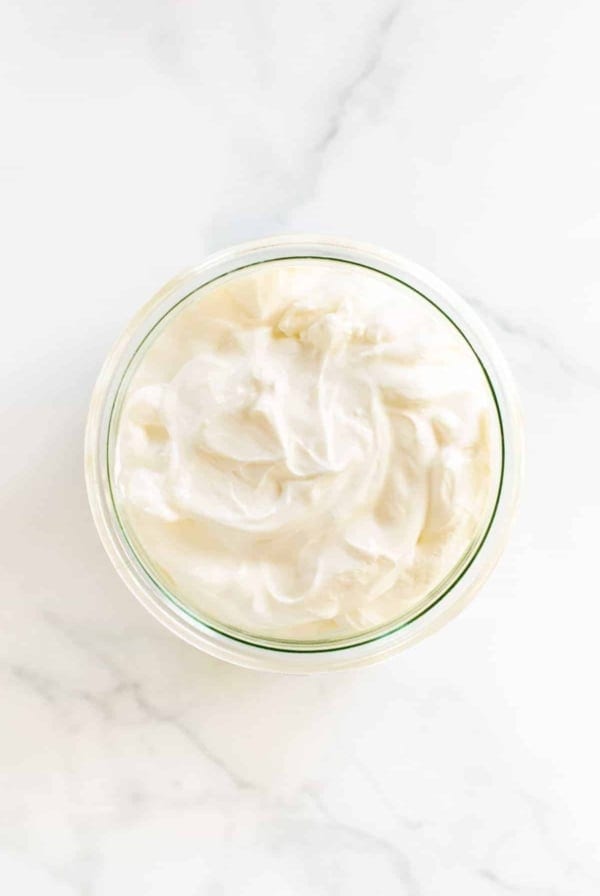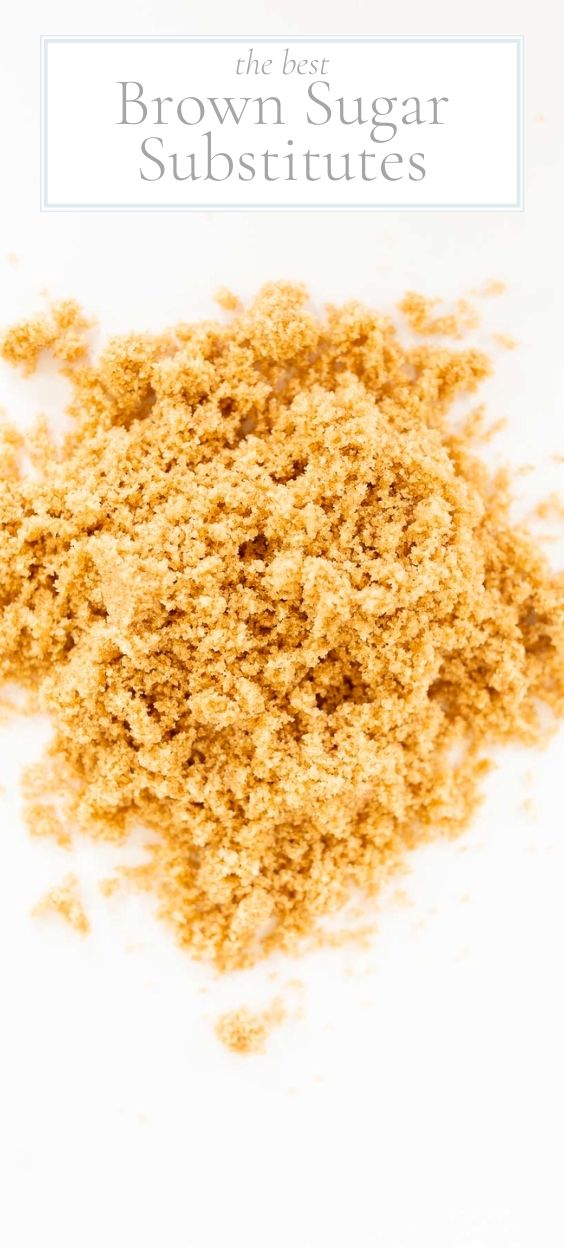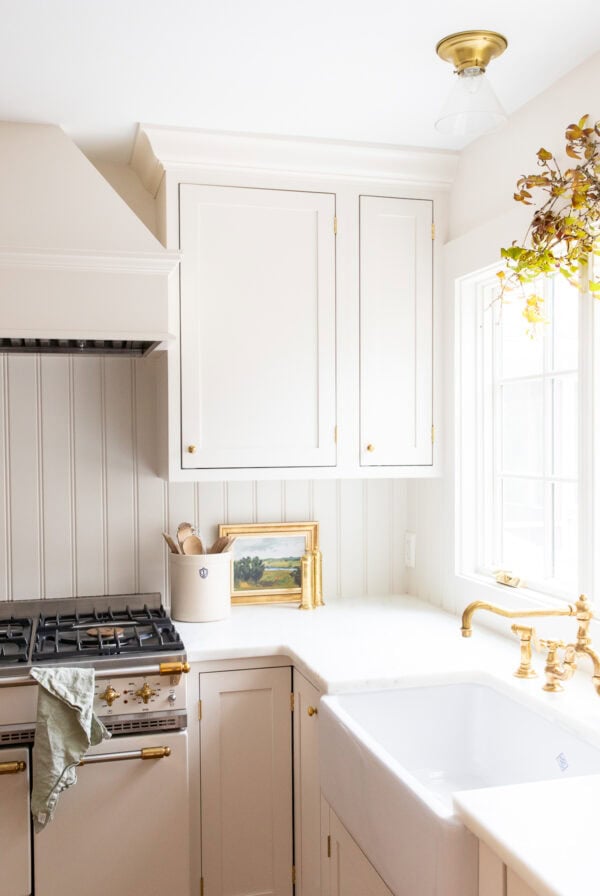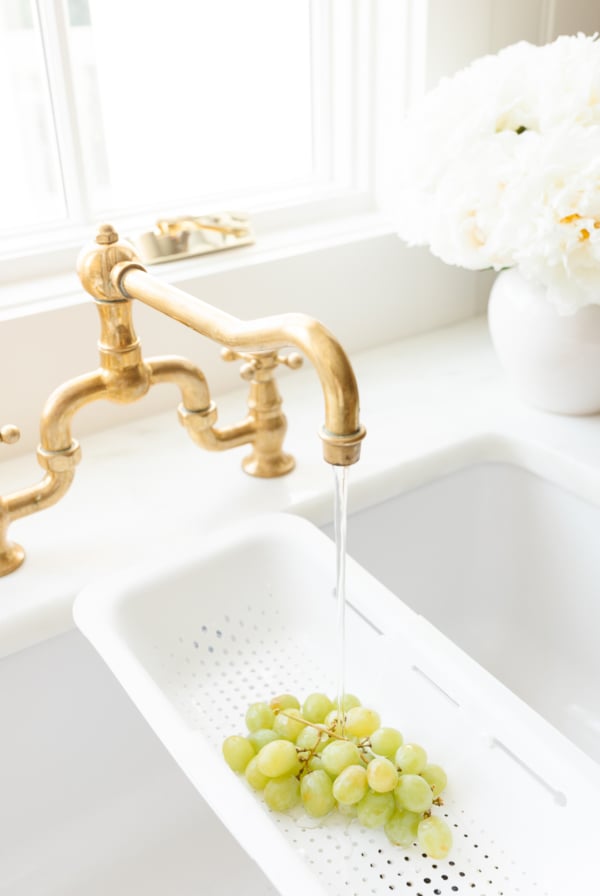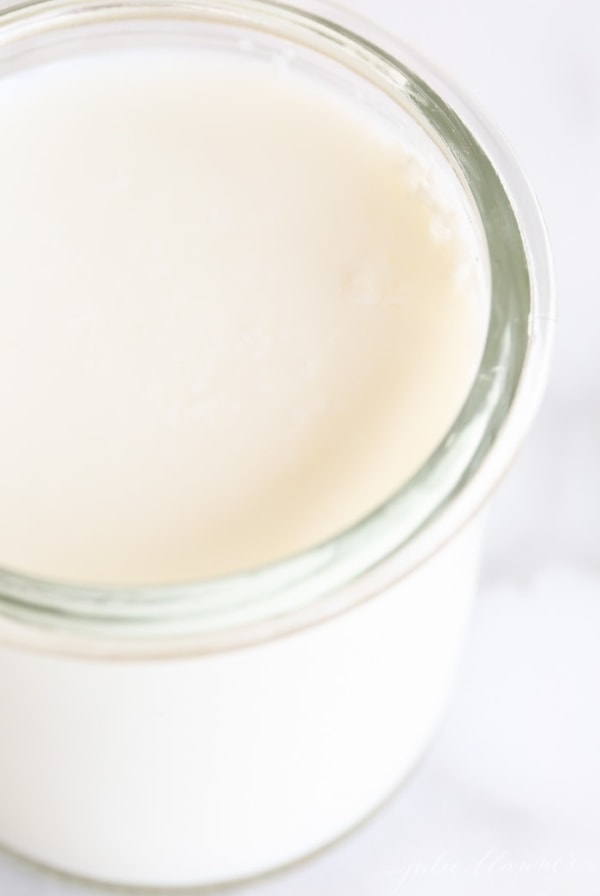These brown sugar substitutes range from healthier unrefined options to everyday pantry ingredients we all have in our kitchen.
Either way, they’ll help you make perfect cookies, cakes, and other baked goods even if you don’t have brown sugar on hand!
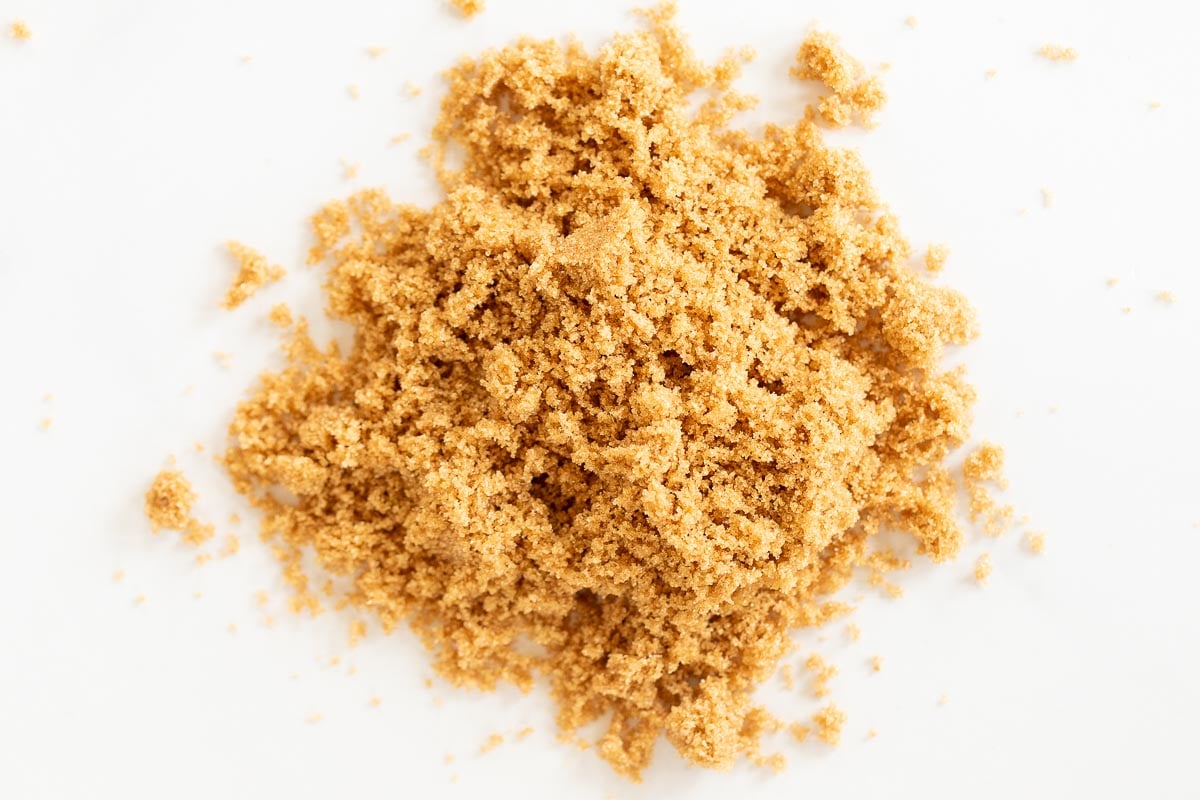
You’re baking a batch of chocolate chip cookies and you realize the bag of brown sugar you were counting on in the pantry is almost empty. It’s a baking emergency!
We’ve all been there before, right?
Luckily, there are plenty of brown sugar substitutes that can save the day—and odds are you have a few of them in your pantry already.
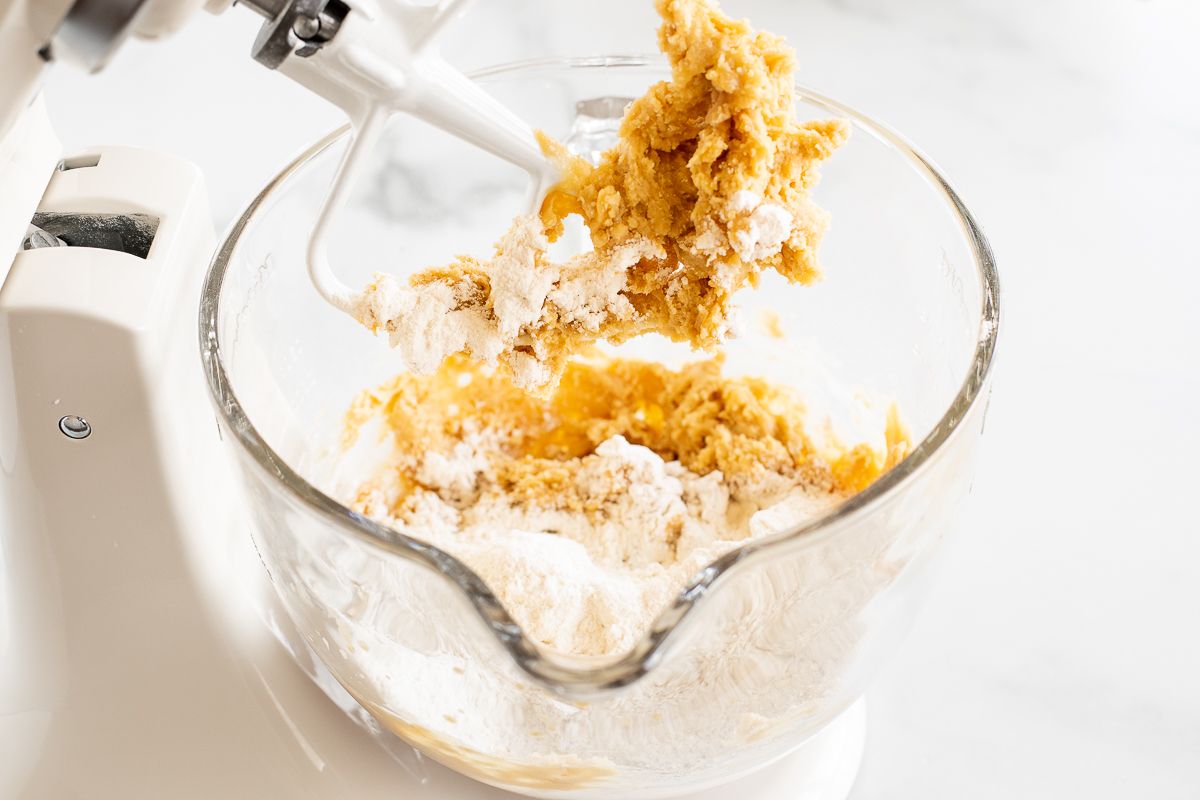
Why Brown Sugar Is Important in Baking and Cooking
It’s a common misconception that brown sugar is a less-processed version of white sugar, but brown sugar actually is white sugar—it’s a combination of white sugar and molasses.
This combination gives brown sugar a higher moisture content and makes it darker in color than regular granulated sugar. It also lends it a unique, almost caramel-like flavor that’s hard to replicate with other sugars—but there are plenty of options you can use to get you close!
We use brown sugar for a few different reasons. In baking, brown sugar adds moisture, chewiness, and a hint of molasses flavor, which is why it’s so delicious in those classic chocolate chip cookies or brown sugar cake.
When we cook, we often use brown sugar to add caramel notes and complexity to sauces and dishes like bananas Foster.
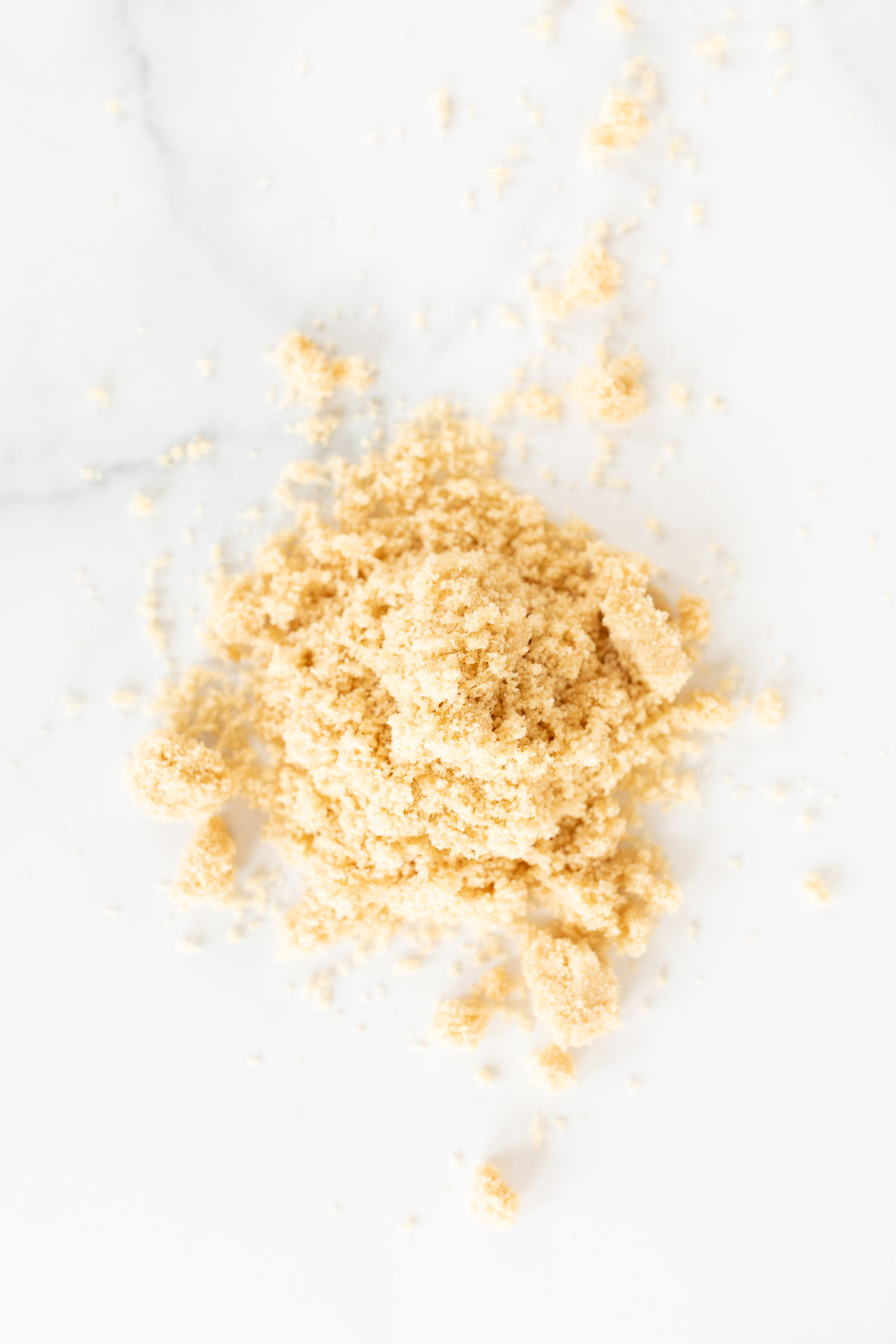
What Is the Difference Between Light Brown Sugar and Dark Brown Sugar?
The difference between light brown sugar and dark brown sugar is the amount of molasses each type has. Light brown sugar has less molasses, so it’s not quite as flavorful. That said, you can use either one in place of the other without altering the recipe too much—the best brown sugar substitute is brown sugar!
But if you don’t have any brown sugar on hand, let’s talk about your options.
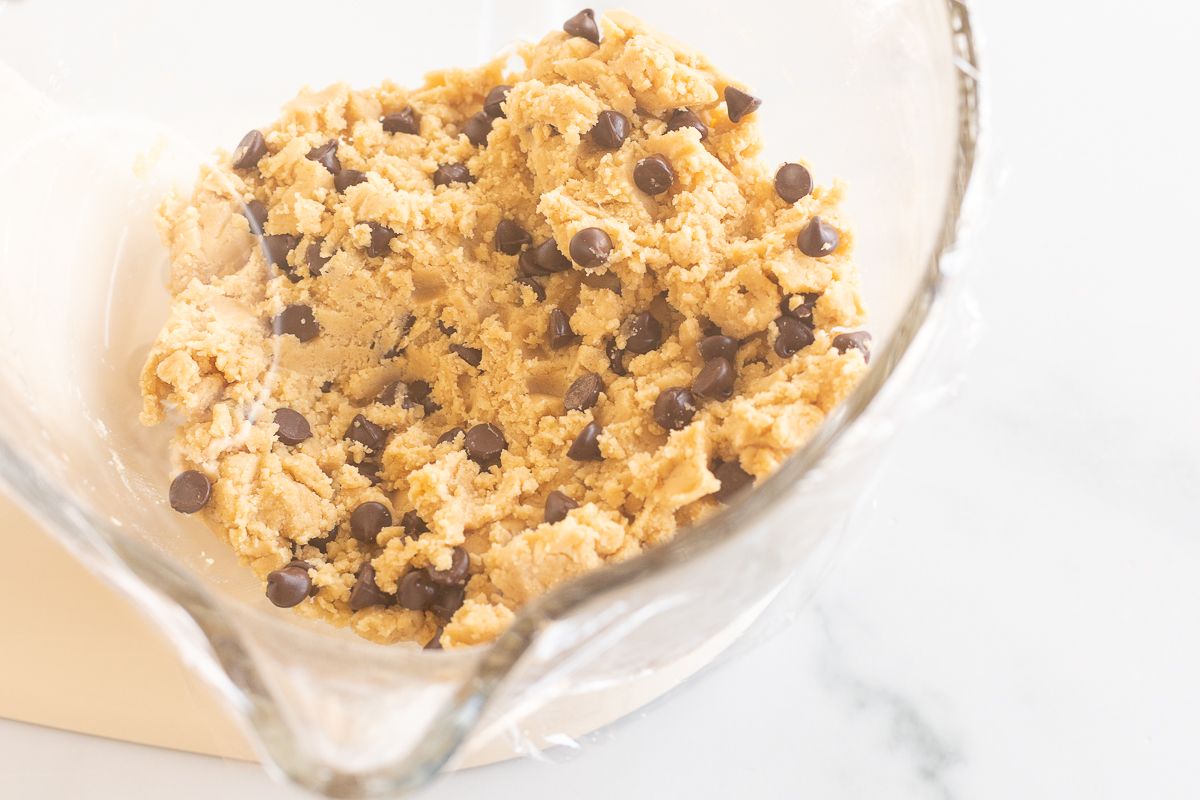
The Best Brown Sugar Substitutes
Here are my favorite ingredients to swap in for brown sugar.

Tips
- If you’re making a sauce, you can use any of these substitutes; for baking, I recommend a substitute that is moist to help give your baked goods the intended texture.
- If you’re replacing a small amount of brown sugar (i.e., a tablespoon or less) when making a sauce or cooking, you can use a liquid sweetener like maple syrup or honey without mixing it with white sugar first.
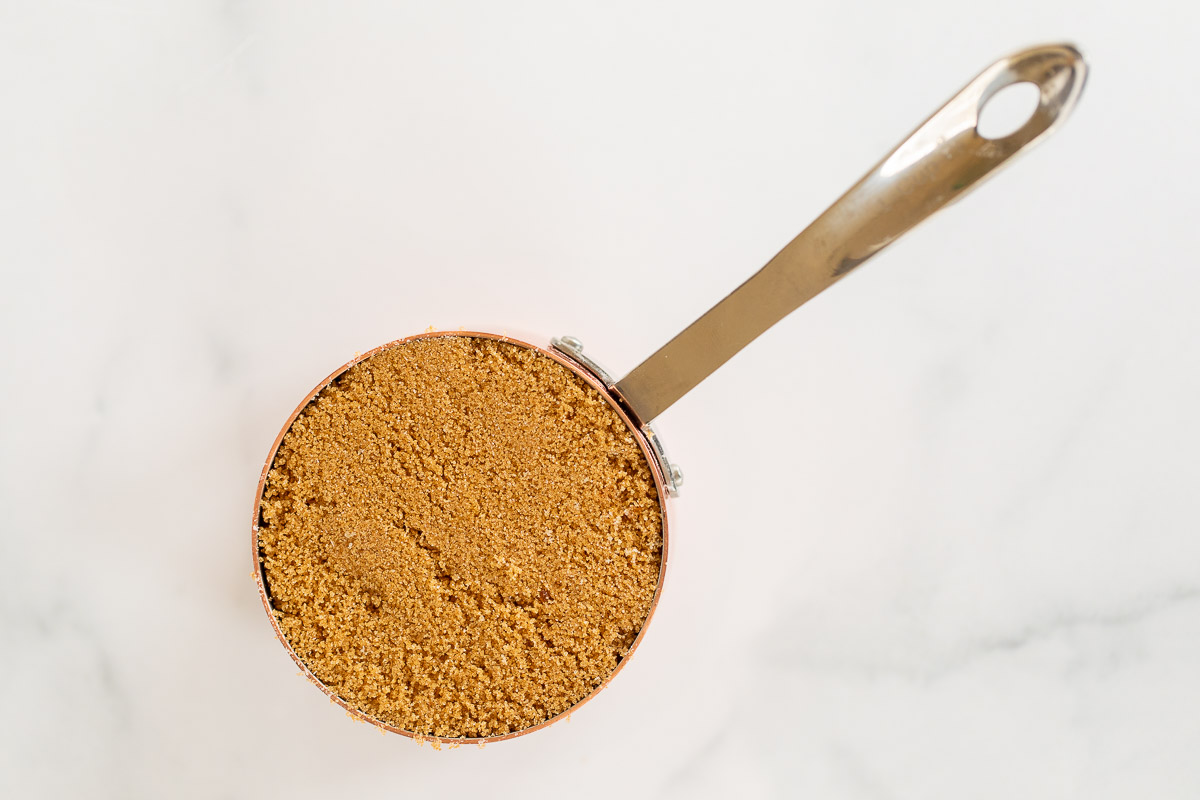
White Sugar + Molasses
This is probably the most common brown sugar substitute, and it’s definitely the most effective—you’re basically making your own brown sugar at home! Mix together 1 cup of white sugar with 1 tablespoon of molasses and you’ve got a cup of light brown sugar. For dark brown sugar, use 2 tablespoons of molasses instead.
White Sugar + Maple Syrup
Maple syrup doesn’t have the same depth as molasses, but it does add some complexity that you don’t get from straight white sugar. Plus, adding the liquid sweetener to the sugar will give your baked goods a nice, chewy texture. Add a tablespoon of maple syrup to each cup of white sugar.
Honey + White Sugar
Honey works much the same way as maple syrup when combined with white sugar, but the flavor is a little less pronounced. It will help you get a chewy texture in cookies, though. Add a tablespoon of honey to each cup of white sugar.
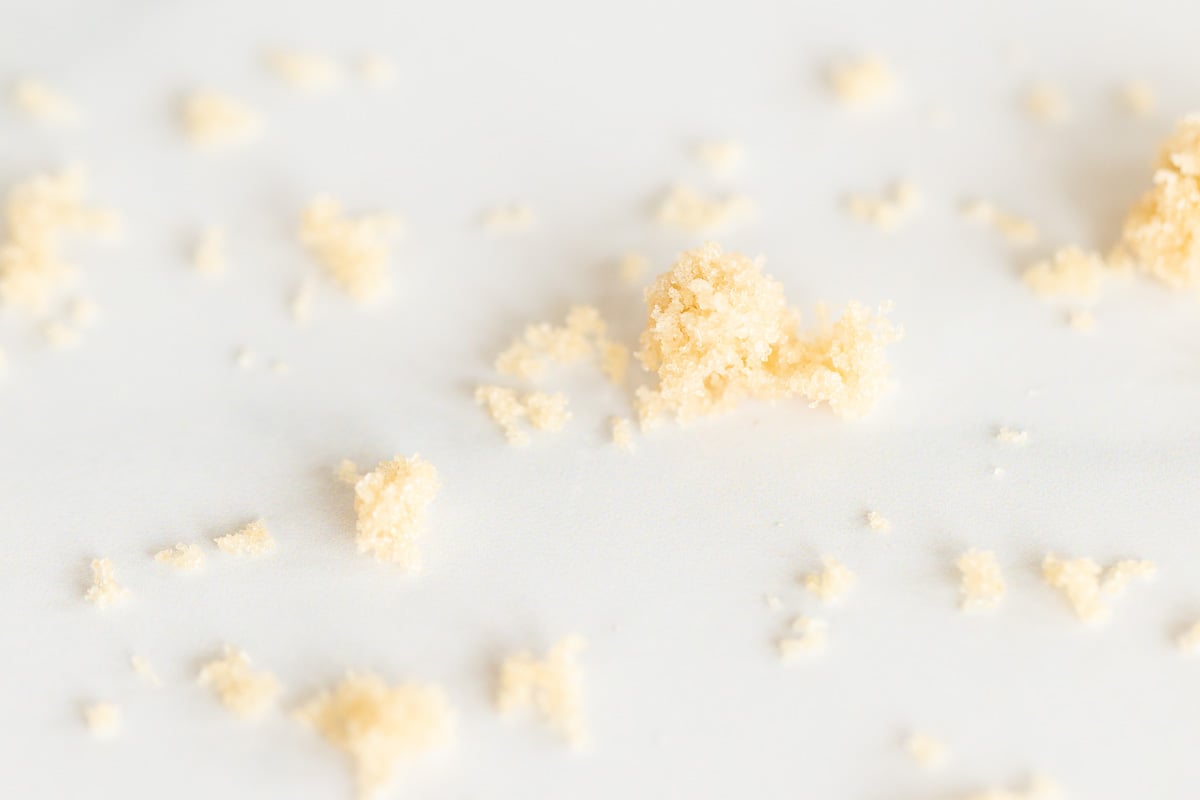
Agave Nectar + White Sugar
This is another substitute that helps you get chewy baked goods, but doesn’t quite match the flavor of brown sugar. Add a tablespoon of agave nectar to each cup of white sugar.
Coconut Sugar
If you’re looking for an unrefined brown sugar substitute, coconut sugar is a great option. The flavor is very similar to brown sugar, but because it’s drier, it will make cookies and other baked goods crispier. In other words, it’s good for replicating the flavor of brown sugar, but not as good for the texture.
Date Sugar
Date sugar is a great option for adding sweetness to baked goods. It’s made from ground dehydrated dates and has more of a molasses-like flavor than other sugars. It’s also a healthy, minimally-processed option.
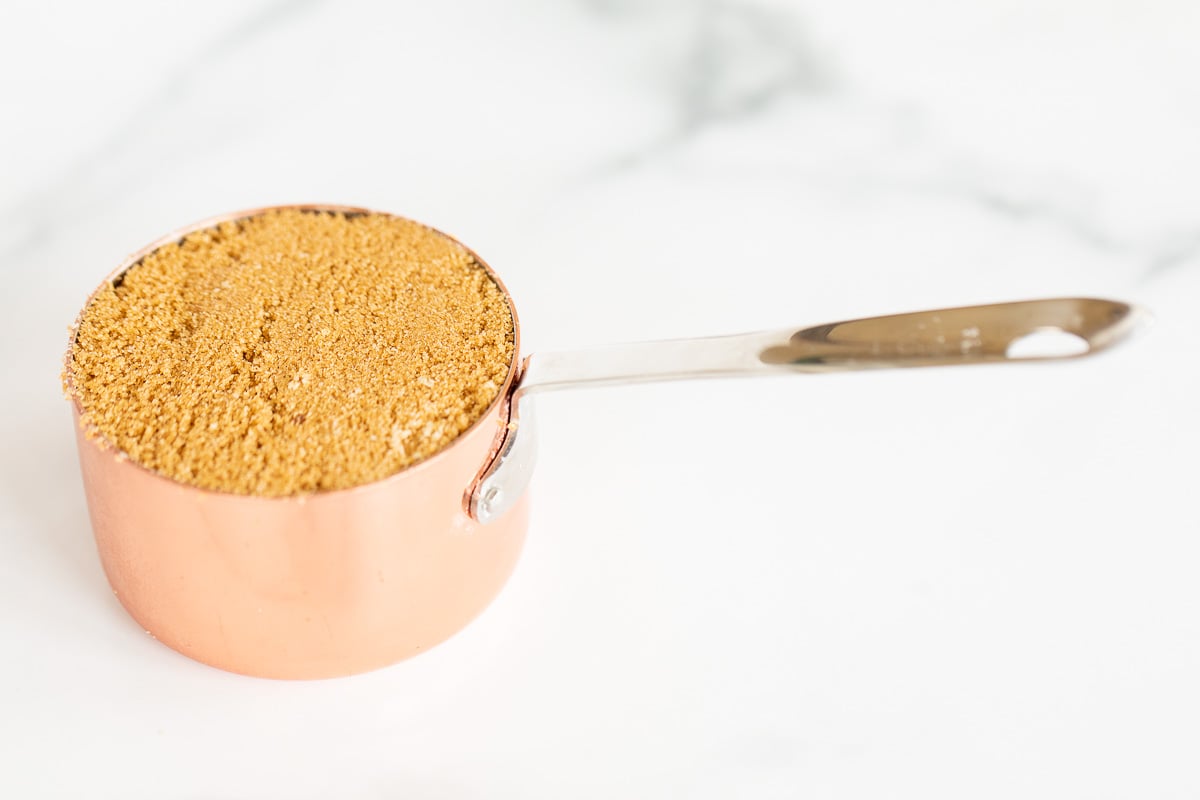
Raw Sugar
Turbinado, Demerara, and Muscovado sugars are raw and unrefined; like coconut sugar, they do a good job mimicking the molasses notes of brown sugar, but both Turbinado and Demerara sugars are dry. Light Muscovado sugar has both the flavor and the moisture of traditional brown sugar, making it the best choice for substitution. If you’re making brown sugar cookies, light Muscovado is your best bet!
White Sugar
Last but not least, white sugar can be also used as a substitute for brown sugar. It won’t add any of the molasses flavor that brown sugar does, but it will provide the necessary sweetness for your recipe. You can expect a drier, crispier texture with white sugar, though.
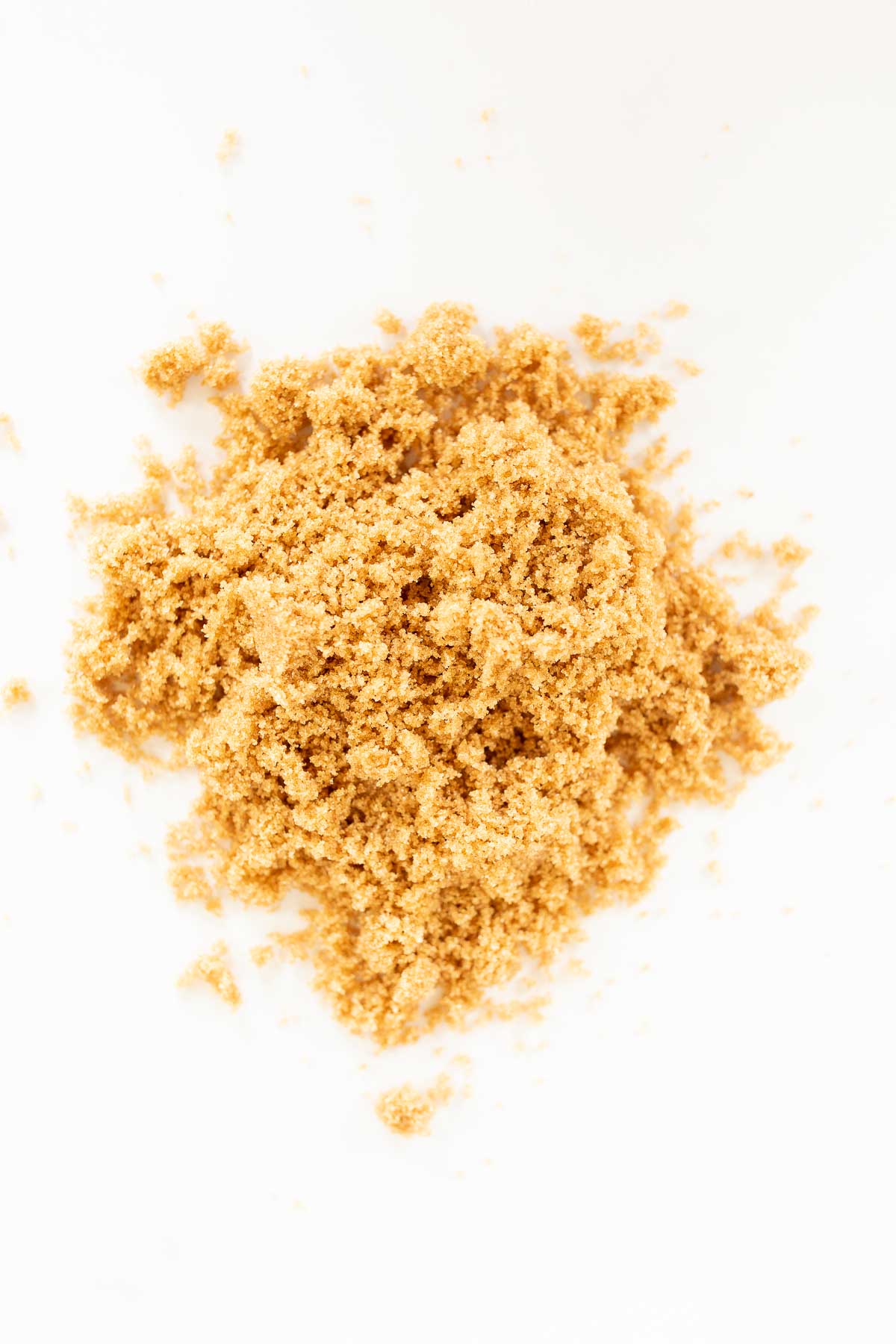
Frequently Asked Questions
Molasses adds flavor to brown sugar, and more importantly for baking, it adds moisture. This extra moisture gives baked goods a chewy texture, rather than the crispy texture you’d get by using white sugar.
Molasses alone is not a good substitute for brown sugar, but you can use a tablespoon or two of molasses with a cup of white sugar to make a brown sugar substitute.
Light Muscovaco sugar is the closest substitute for brown sugar. It has the same molasses content as brown sugar, so the flavor and moisture are very similar.
It’s a misconception that brown sugar is less processed and healthier than white sugar. The added molasses does give brown sugar a little more iron than white sugar, but it’s still a food best enjoyed in moderation!
